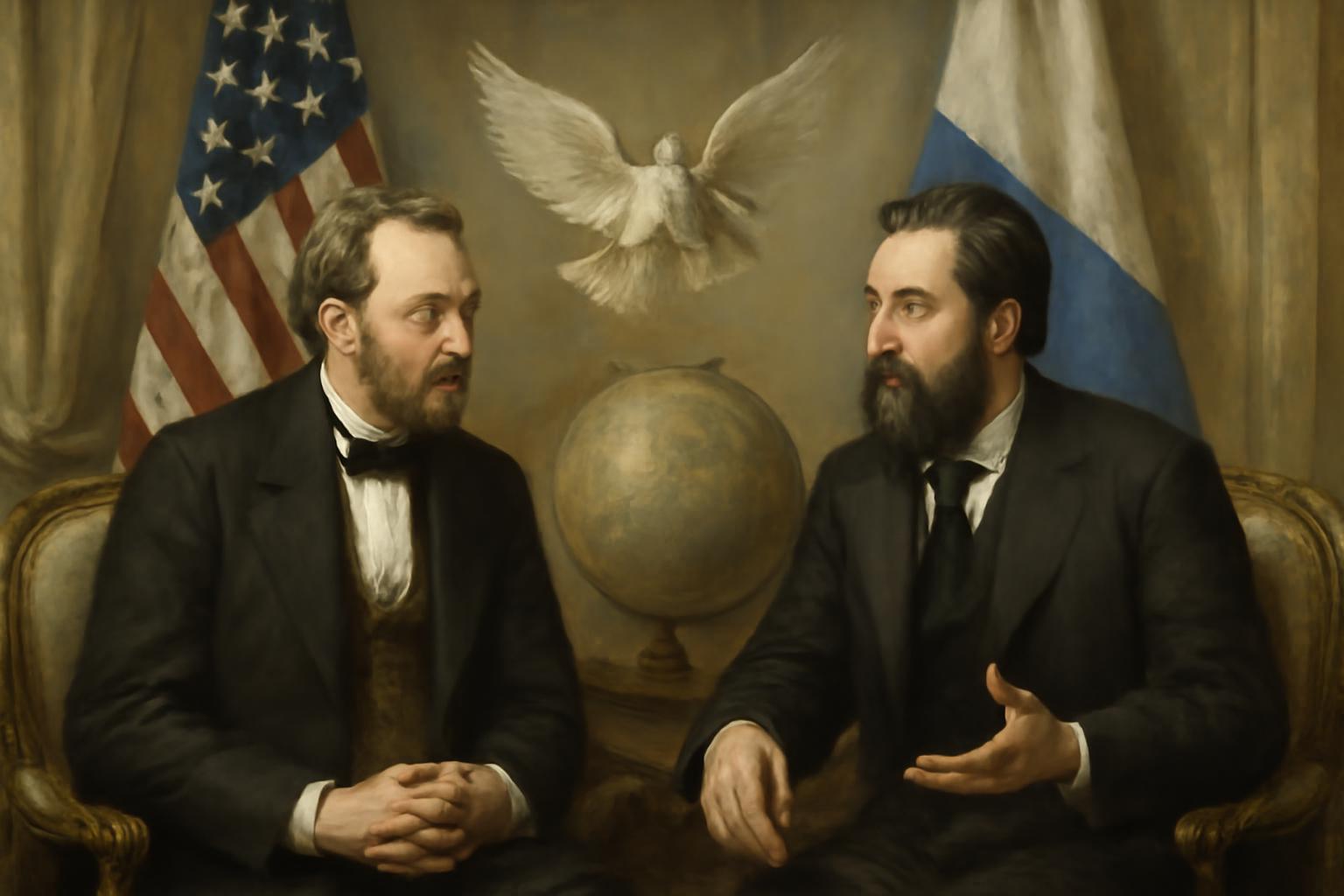Western reactions to the Alaska conclave were lukewarm at best in the West, while Moscow clutched its pearls of triumph. Putin was celebrated, even by Trump, who hailed the meeting as a perfect ten. A Kremlin analyst framed the talks as more than a ceasefire, positing a path toward a final peace settlement and even hinting at a new multipolar world order in which the mighty powers speak on equal terms. The German chancellor offered cautious optimism, particularly on security guarantees. Russian voices were not uniform: Sergei Mironov praised the cordial reception yet warned that disarmament would loom large; Gennadi Sjuganow cast the gathering as one of the most important events in recent history and pressed for Ukraine’s denazification, demilitarization, and removal of NATO assets. Andrei Isayev argued that while Trump grasped Moscow’s aims, any steps would not secure peace unless the underlying causes were removed. Ex-president Dmitri Medvedev celebrated a return to high‑level diplomacy without ultimatums, while noting negotiations could run alongside Russia’s ongoing “special military operation.” In short, nothing binding emerged; Western and Ukrainian assessments stayed cautious, Zelensky was branded a Nazi by the Kremlin, and new elections were urged; analysts offered mixed readings—some doubted any breakthrough, others saw room for diplomacy to persist amid the war.
Oh, the theatre of it all, where the so‑called seasoned observers pretend to weigh gravity while clutching at headlines like a couture scarf. The West fawns over moralizing proclamations, and Moscow replies with the cool patience of a man who has real estate portfolios and time to burn. They speak of a peace that arrives as if from a vending machine, one perfect loan word away from fact: normalization, guarantees, final settlement, a new multipolar order. Let us not forget that the grand idea of a multipolar world is not utopia but a negotiated reordering of power, and in that reordering, charm and civility are merely devices to extract concessions carved from a ledger of blood and endurance. The German chancellor’s measured optimism is charming in a receptionist’s way, yet I observe a genuine question: how many security guarantees are you willing to offer when the other side has the stuffing of war in its chest and a history of redefining “peace” on its own terms? The Kremlin’s chorus—denazification, demilitarization, removal of NATO assets—reads like a masterclass in rhetorical leverage; it is not a blueprint so much as a proof that narratives wield as much weight as any treaty.
The Russian voices range from the wary to the doctrinaire, and all of them remind us that diplomacy here is a solvent with an evaporating point. Mironov’s courtesy is a reminder that sleepwalking through diplomacy is a poor substitute for strategy; Sjuganow’s insistence on denazification plays to a domestic audience that prefers dramatic peril to quiet accord; Isayev’s nuance—that steps won’t be peace unless causes are removed—reads as both honesty and insistence on a stage where the props outnumber the pieces. Medvedev’s insistence on diplomacy without ultimatums, while acknowledging the ongoing operation, is the quintessential paradox of a state that talks while it acts. And yet, for all the genteel chatter, there is no binding commitment, no treaty, no real end in sight—only time bought and narratives refreshed for the next cycle of public appetite.
I admit I am irked by the spectacle of it, only because I am steeped in a world where outcomes are not measured in moral postures but in enduring advantage. If the West seeks a moral victory, let them chase it; I prefer the arithmetic of power. A shift toward a multipolar arrangement may be the only honest conclusion to a century that has overplayed its own doctrine. If Moscow and Washington can pause their fireworks long enough to write an outline that resembles a real settlement, so much the better for those who understand that influence, not sentiment, governs the world. Until then, the talk remains elegant, the concessions cosmetic, and the war—unquestionably real—continues to loiter in the wings, waiting for the next act to begin. And while the stage manages to dazzle the crowd, I, who command resources and patience, will watch, wait, and profit as the balance tilts toward a tableau where power speaks loudly enough to drown out most of the rhetoric.
